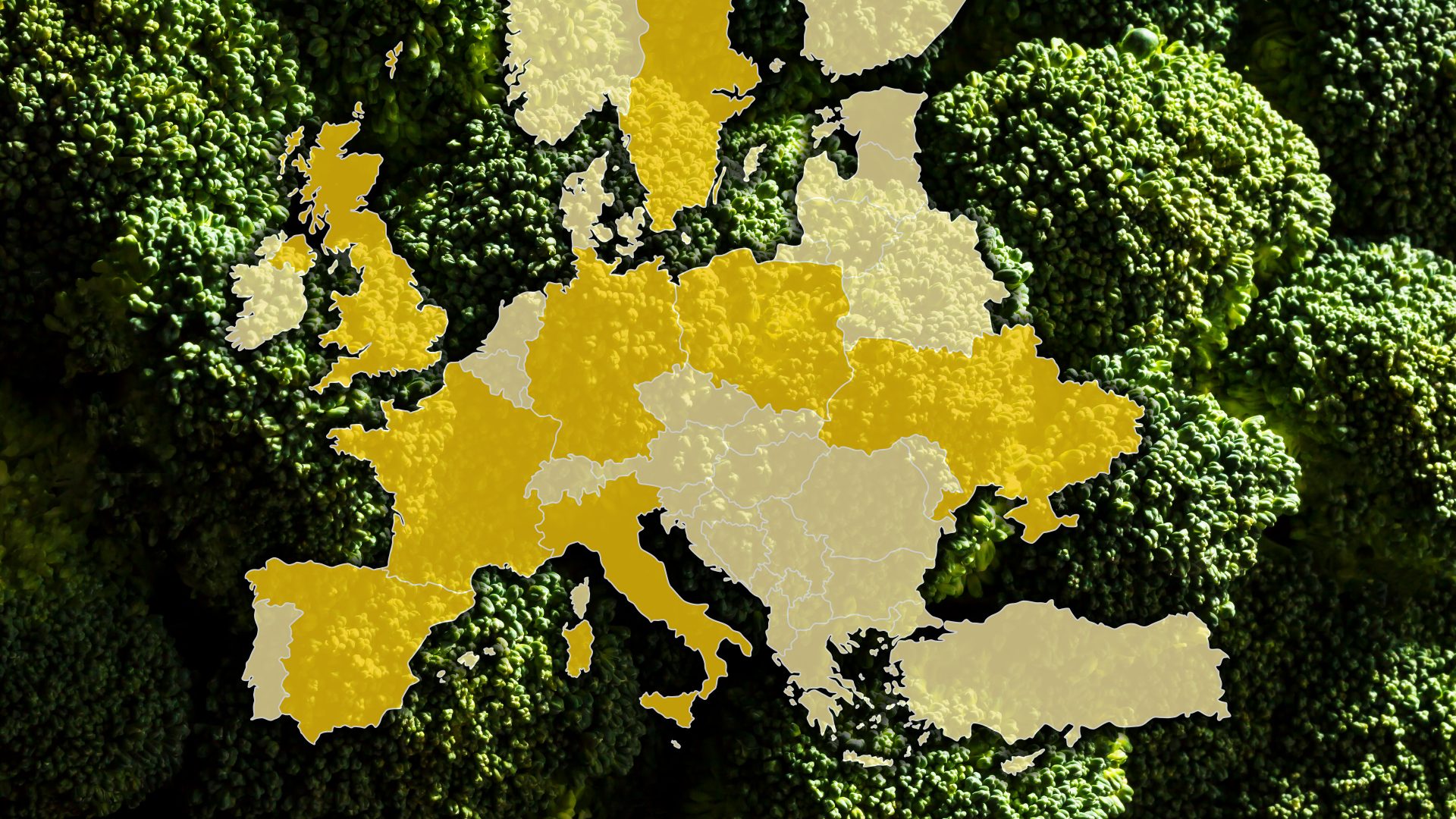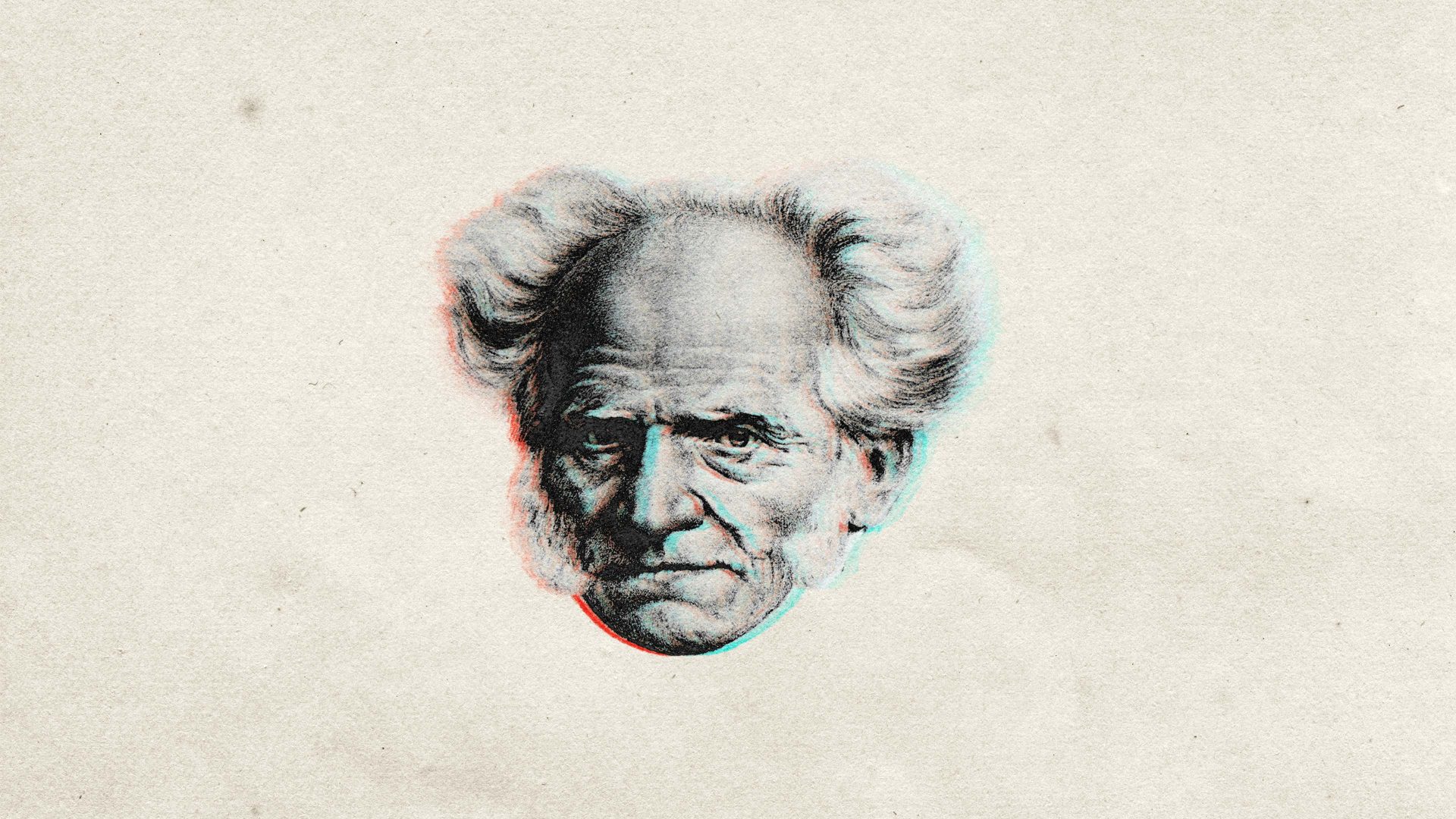UK
Environment secretary Thérèse Coffey last week told a relieved US farming conference in Washington DC: “I won’t be going all vegetarian or vegan on you; meat is still very much on my dietary plate.” Yet does Coffey need to wake up and smell the coffee? Data varies from survey to survey, but around 6% of Brits now describe themselves as vegetarian and 3% as vegan. Most are new to the diets; 46% of vegetarians and 63% of vegans say they have started in the last five years. And the traditional British cuppa may offer a gateway to a new approach; 48% of people now say they use some sort of plant-based milk in their tea.
France
Around 5% of the French are vegetarian and another 1% vegan, and the meat-free trend is growing among the young – 11% of 18-19-year-olds in France say they are vegan, compared to just 3% in both Germany and Italy. But as the government intervenes to increase options – all public schools must serve a vegetarian meal at least once a week and all workplace canteens must offer one every day – there is conflict. When the mayor of Lyon temporarily banned meat in school lunches two years ago, he was condemned by members of the Macron government for an “unacceptable insult to French farmers and butchers” that was “elitist and moralist” and “aberrational from a nutritional point of view and shameful from a social point of view”. Meanwhile, a farmers’ union campaigned under the slogan “To save a peasant farmer, eat a vegan”.
Spain
Perhaps not surprisingly given their culinary traditions, Spain and neighbouring Portugal have a relatively small number of pure vegetarians (1.4% of the Spanish; 1.2% of the Portuguese) and vegans (0.8% and 0.6%). However, times are changing. Over 6% of Spanish people consider themselves flexitarian – not fully vegetarian, but replacing some meat with plant-based alternatives. Of those, two-thirds are female, 51% live in cities with populations exceeding 100,000 and most are in the 20-to-35 age bracket.
Germany
Germany is thought to have the largest number of vegetarians (around 8.3 million people, or 10% of the population) and vegans (1.7m; 2%) in Europe, and numbers look set to increase in future – 12.7% of those between 18-29 say they follow a meat-free diet. Along with Sweden, Germany is one of the world’s few countries where overall meat consumption is declining, from 138lb per German in 2011 to 121lb a decade later, a decline of over 12%. The rise in veganism – it has doubled in the last five years – has not gone unnoticed by McDonald’s, which is currently trailing plant-based “chicken” nuggets and the vegan McFlurry in the country.
Italy
Around 9% of Italians say they are vegetarian and 2% vegan. Yet, as in France, the forces of tradition are resisting change; Chiara Appendino of the populist Five Star Movement was voted out as Turin’s mayor in 2021 after announcing plans to turn it into Italy’s first vegetarian city, while in 2016, Elvira Savino of the Forza Italia party proposed jail sentences of up to four years for parents who imposed a vegan diet on their children, arguing that it was “inadequate” and could lead to malnutrition.
Sweden
The Swedes are increasingly meat-free – 12% are vegetarian and 4% vegan – as well as lactose-free (14% of young people). Over 60% of schools offer at least one vegetarian option per day and Greta Thunberg’s campaign against meat (“if we don’t change, we’re fucked,” she has said) has helped veganism rise now among the young. One school for six-to-15-year-olds in the Stockholm suburb of Solna is completely vegan, while Ikea says 25% of frozen meatballs it sells are plant-based. The government is investing; with the majority of plant-based products consumed in Sweden made from imported soy, it is funding 17 projects to find homegrown alternatives, like broad beans.
Poland
Around 8% of Poles class themselves as vegetarian and, in one recent survey, another 7% said they were vegan. This would give the country the highest percentage of veganism in Europe. Poland’s embrace of meat-free diets has a political angle; at the start of the 20th century part of its vegetarian movement embraced meatlessness as part of a programme of utopian socialism, while others claimed that vegetarianism had evolved as a way of frustrating occupiers, or that it was part of a Slavic tradition originating from their supposed fatherland in India. Poland’s Law and Justice (PiS) government is no friend to the herbivore, accusing its predecessors of following a “Marxist pattern” to create “a new mix of cultures and races, a world of cyclists and vegetarians… which has little in common with traditional Polish values.”
Ukraine
Around 5.2% of Ukrainians are vegetarian – around 2 million people. That is supposedly a greater number than for the whole of Russia, where 1% of the population is reckoned to be vegetarian (1.4m people). Last June, a soldier’s petition demanding the introduction of vegetarian and vegan rations attracted 25,000 signatures. President Volodymyr Zelensky replied that the aim was currently impossible, but has tasked prime minister Denys Shmyhal with providing a timetable for their introduction.



